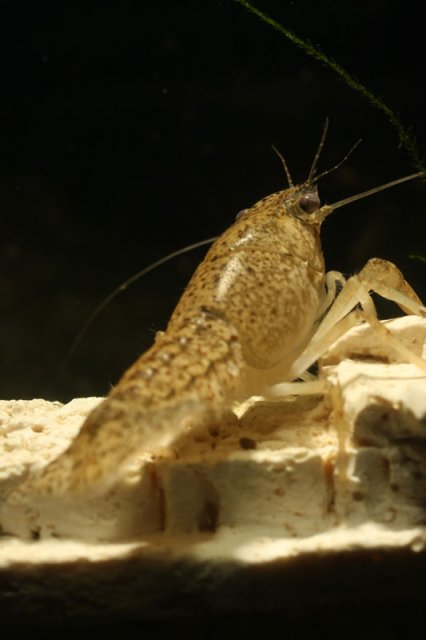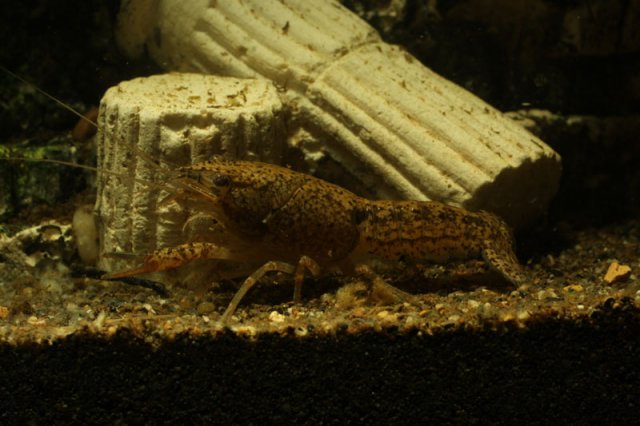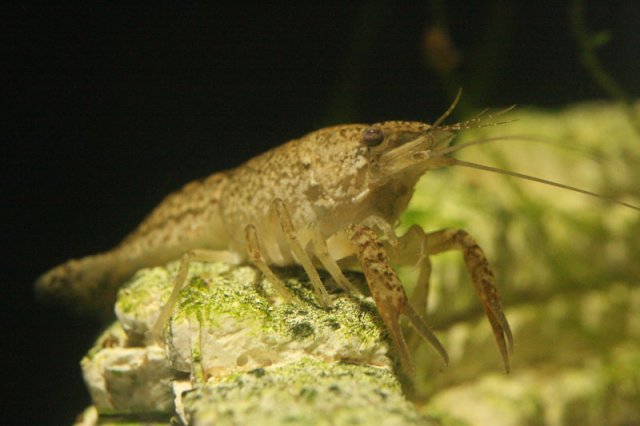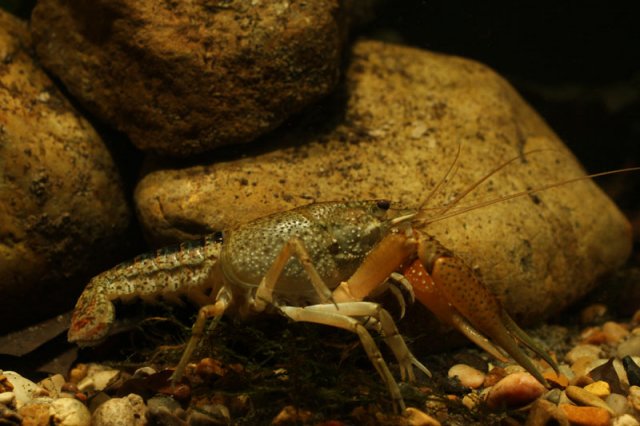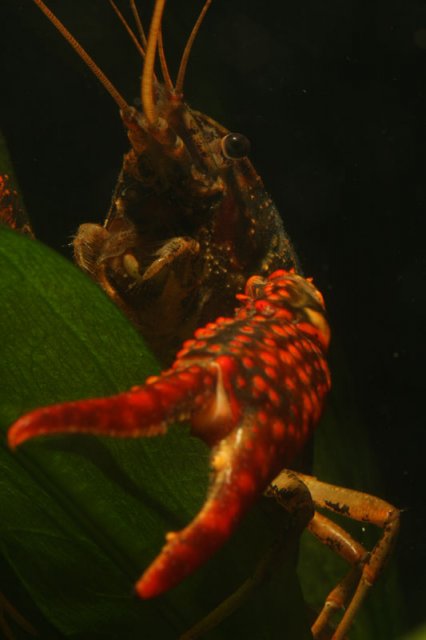Looks like a young Procambarus alleni to me, they are very common in North America. They can become
very aggressive towards any type of tank mate. I've had some that were ultra aggressive and others that never harmed anything. They do dig and destroy living plants. They also get very large, and need a least a 20L tank. They are very hardy, and can easily handle a range of temps, and water hardness levels. However, once it's acclimated, try to keep the water chemistry consistent.
When it comes to sexing a P. alleni, you have to study shape of the adult claws, or the faster way is to look for gonopods. They are two tiny appendages, under 1/4" long on an adult, at the end of the thorax, just behind the last walking legs and before the swimmerets. Females will not have gonopods. If you ever want to breed this species, you should plan on having three tanks. One for the adult male, one for the adult female, and another nursery tank. When you want to mate the adults, make sure that you put the female in the male's tank. An adult female will look at a strange male, in her territory, as an invader and attack. The male will see a strange female as an opportunity to get lucky.



